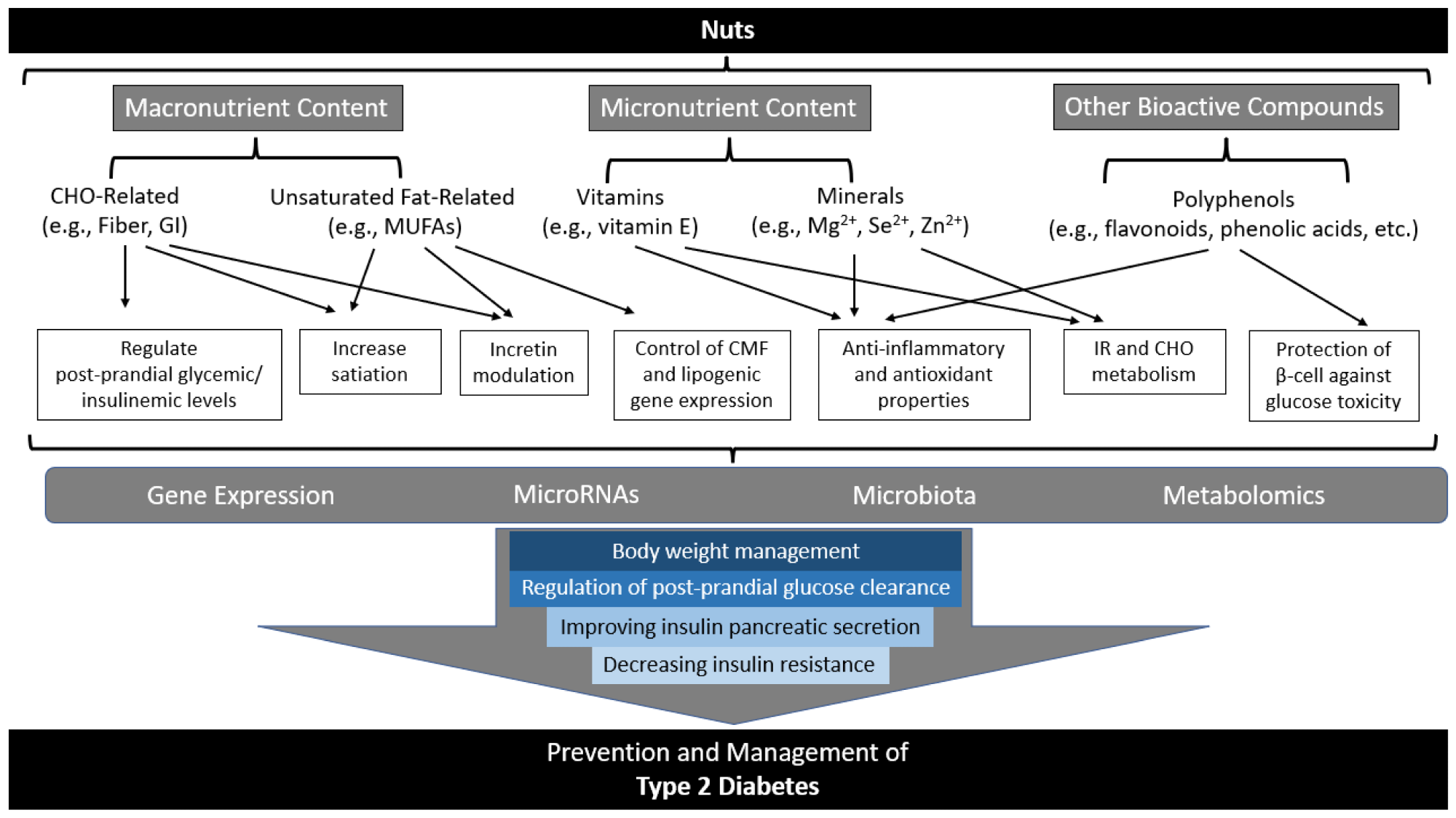Type 2 diabetes is a metabolic disorder that affects one in ten people worldwide. There has been an alarming increase of 16% in the global prevalence of type 2 diabetes over the past two years. Diabetes is also associated with other health complications, such as neuropathy, retinopathy, chronic kidney disease, and cardiovascular disease. Recently, scientists reviewed the role of nuts in the management of type 2 diabetes. This review is available in the journal Nutrients.
Around 11% of adults across the world have impaired glucose tolerance. This group is at a high risk of developing type 2 diabetes (T2D). Diabetes can be managed through lifestyle changes, particularly adherence to healthy diets and regular exercise. As per the recent diabetes guidelines, the Mediterranean diet, which involves high consumption of fruits, vegetables, nuts, seeds, olive oils, fish, and eggs, and a low intake of red meat, has been recommended for diabetes patients.
Different tree nuts include cashew, hazelnuts, Brazil nuts, almonds, pecans, pine nuts, pistachios, walnuts, and macadamias. Although peanuts are considered nuts, they are technically a legume. Nuts are considered nutrient-dense foods that provide unsaturated fatty acids, non-sodium minerals, phenolics, plant protein, and other important bioactive metabolites.
The authors collected relevant articles from PubMed and Cochrane's databases related to T2D and nut consumption for this review article. Both peanut and tree nuts were considered in this study.
How does Nut Consumption Affect Glucose Metabolism?
Few epidemiological studies have evaluated how nut consumption affects glycemic control markers. A previously conducted Tehran Lipid and Glucose Study (TLGS) revealed lower fasting serum glucose levels after higher nut consumption. Several cross-sectional studies have highlighted an association between nut intake and glucose/insulin homeostasis markers. A higher nut intake has been linked to significantly low levels of all diabetes-related biomarkers, such as plasma insulin, blood glucose, homeostasis model assessment-insulin resistance (HOMA-IR), glycated hemoglobin (HbA1c), oral glucose tolerance test (OGTT), and HOMA-β.
The effect of nut consumption frequency on insulin resistance was assessed based on HOMA-IR. This study revealed that consumption of more than five servings (1 serving = 15 g) of nuts per week, compared to less than one serving a month, leads to lower HOMA-IR. This observation was found to be predominantly true among women participants aged less than 40 years.
Based on clinical trial evidence, nut consumption alone lowered postprandial glycemia in participants associated with high glycemic index (GI) food intake. In healthy individuals, the consumption of almonds with white bread significantly lowered postprandial glycemia.
A five-arm, randomized crossover trial was conducted involving individuals with impaired glucose tolerance. Participants were randomly divided into different groups, and each group was administered whole almonds, defatted almond flour, almond butter, almond oil, or no almonds. The whole almond-consuming group observed a significant decrease in blood glucose levels. Interestingly, in the case of peanut intake, a quicker return of insulin to basal concentrations was observed when obese men consumed shakes containing conventional peanuts and high-oleic peanuts. Nut consumption led to a significant lowering in fasting insulin and HOMA-IR; however, it did not have a considerable effect on fasting glucose or HbA1c.
 Summary of potential mechanisms of action for the role nuts may play in diabetes prevention and management. Adapted with permission from, Hernández-Alonso et al. Abbreviations: CHO, carbohydrate; CMF, cellular membrane fluidity; GI, glycemic index; IR, insulin resistance; MUFAs, monounsaturated fatty acids; RNA, ribonucleic acid.
Summary of potential mechanisms of action for the role nuts may play in diabetes prevention and management. Adapted with permission from, Hernández-Alonso et al. Abbreviations: CHO, carbohydrate; CMF, cellular membrane fluidity; GI, glycemic index; IR, insulin resistance; MUFAs, monounsaturated fatty acids; RNA, ribonucleic acid.
Consumption of Nuts and Diabetes Prevention and Management
Epidemiological studies revealed inconsistencies and inconclusive findings related to nut intake and the incidence of T2D. To date, the effect of nut consumption, in a dose-dependent manner, on the incidence of T2D risk has not been elucidated. Also, most of the studies have combined nuts with other foods, making the assessment of individual nuts' roles in glycaemic index difficult.
Only one study shed light on walnut consumption and the associated risk of diabetes. This American prospective cohort study revealed that consuming more than two servings (1 serving = 28 g) of walnuts per week lowers the risk of T2D. However, this finding was contradicted by other studies. Basically, the literature lacks research that validates the results documented by other researchers on nut exposures and T2D.
No clinical trials aimed to assess the efficacy of nut supplementation to reduce or prevent the incidence of diabetes were found. However, several studies revealed the beneficial effects of the Mediterranean diet, which entails a high consumption of tree nuts.
The macronutrients, micronutrients, and other bioactive compounds present in nuts regulate postprandial glycemic and insulinemic levels. In addition, they aid in body weight management, have anti-inflammatory and antioxidant properties, control cellular membrane fluidity, and protect β-cells against glucose toxicity, microRNAs, and pancreatic insulin secretion.
Future Outlook
In the future, dose-response analyses are required to elucidate the total amount of nuts consumed for possible diabetes-related health benefits. Also, the impact of nuts in the prevention and management of TYD must be elucidated in greater detail. Since very little epidemiological and clinical trial data is available, more research could be conducted in this area to provide more insights into developing diabetes dietary guidelines.
Conclusion
Based on the limited evidence currently available, nuts may have beneficial effects on diabetes management and prevention. A diet that includes nuts may also lower cardiovascular disease risk and mortality in those with T2D and improve glycemic control.